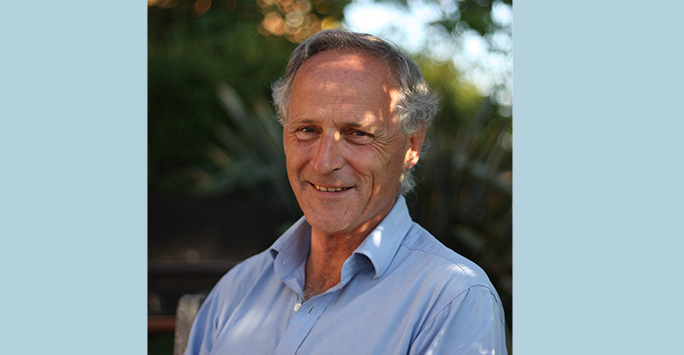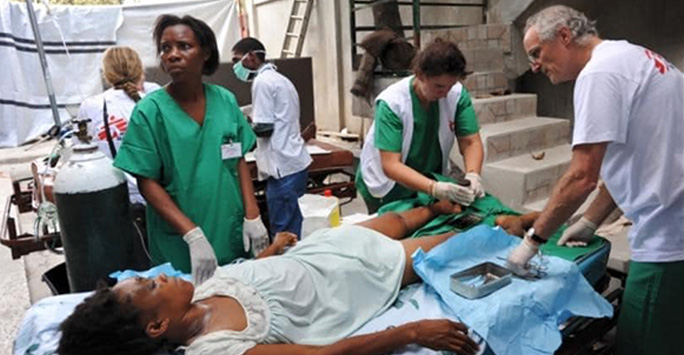
Professor Paul McMaster, leading surgeon and founder of Birmingham’s Liver Unit, leaves behind a legacy defined by his exceptional surgical skills, visionary leadership and pioneering achievements in transplantation which ultimately transformed countless lives.
From a young age, Paul knew he wanted to be a doctor. Following his time at Liverpool College, he began studying medicine at the University of Liverpool and graduated in 1966.
During his time at the University, Paul enjoyed playing for the medics’ rugby team, joining in annual debates (winning in his fourth year!), and exploring Brian Epstein’s NEMS record store where, as his friends describe, they would ‘cram into the tiny booths to listen to as many records as possible, before not buying!’
During Paul’s final year at the University, he was taught by Robin Downie, a consultant surgeon at Walton Hospital, who greatly influenced Paul’s future career direction. Whilst doing house jobs at the Liverpool Royal Infirmary, Paul would meet his future wife, Ruth, who worked as a staff nurse.
Paul’s training continued at the Hammersmith Hospital towards the end of the 1960s, working under Professor Leslie Blumgart, and later being appointed surgical registrar at Addenbrooke’s Hospital in Cambridge.
As a surgical trainee, Paul was recognized for his exceptional skills and natural aptitude. His colleague, David Mee, recalls Paul’s ability to guide peers through complex procedures with calm and wise guidance, often stepping in to take over with great skill when necessary. This ability earned him the admiration and respect of both peers and senior consultants alike.

Paul's career saw significant milestones, including his role in performing the UK's first pancreas transplant in Cambridge during the 1970s. Former colleague Joe Adu praised him as a “physician’s surgeon, who returns a patient back to the ward looking better than when he or she went into the operating ward. There is no greater accolade for a surgeon.”
His contributions to medicine continued to flourish when he moved to Queen Elizabeth Hospital Birmingham in 1980. There, he established the second liver transplant center in the UK alongside Professor Elwyn Elias. Despite initial opposition and lack of funding, Paul’s determination and innovative thinking led to the center’s success and eventual central funding.
Paul's impact extended beyond his surgical prowess. His dedication to research and education helped build a strong multidisciplinary team, fostering a culture of excellence within the Liver Unit. His leadership and teaching skills influenced over 1,000 national and international fellows, many of whom went on to lead transplant programs worldwide. His friends list some of his most outstanding achievements:
Paul introduced low dose immunosuppression, co-pioneered hepato-pancreato-biliary surgery, set up the liver research centre in Birmingham, led key international trials in the field of immunosuppression, chaired national advisory groups setting standards in transplantation, and has left behind a prolific legacy both at home and around the world.
Paul’s international efforts included being President of the European Society of Organ Transplantation and a co-founder of the European Liver and Intestinal Transplant Association and made a huge impact on the careers of transplant clinicians around the world, including surgeons, radiologists, anesthetists and specialist nurses.
In 2003, he retired from the NHS, leaving behind a “thriving and busy unit, the largest in Europe, providing complex care for liver, pancreas and biliary disease in adults and children on two hospital sites,” where around 6450 liver transplants have been performed in Birmingham over 42 years in addition to over 1000 non transplant liver/pancreas/biliary operations done every year.
Beyond his clinical achievements, Paul was a visionary leader in the humanitarian field. Following retirement, he pursued a BA in Conflict Studies and began working with Médecins Sans Frontières (MSF). His humanitarian efforts took him to challenging and dangerous environments across Africa, Sri Lanka, Syria, and Haiti, where he provided critical medical care to those in need:
He was particularly active in Haiti after the 2010 earthquake, arriving there within a week, where he had to purchase surgical instruments in the local market, operate in the open and oversee up to 80 newborn deliveries daily!
In 2013, Paul was awarded an Honorary Doctor of Medicine degree by the University of Birmingham. A few years later, in an interview published by the British Medical Journal, Paul said his biggest inspiration was his father, who he described as a good family doctor who cared. When asked about what poem or passage of prose he would like read at his funeral – he replied: “I don’t want mourners – I want it to be a celebration and to be fun.”
Paul McMaster’s legacy is defined by his unwavering commitment to improving patient care, his ability to inspire and lead, and his dedication to serving others. His colleagues, friends, and the countless lives he touched remember him as a brilliant surgeon, a compassionate physician, and a visionary leader. His impact on the medical community and beyond will be remembered and celebrated for years to come.
With thanks to Professor Darius Mirza, David Mee, Denis Wilkins, David Cooper, Elwyn Elias, Bridget Gunson, Joe Adu, John Buckels, David Adams and the MSF for their Eulogy input.